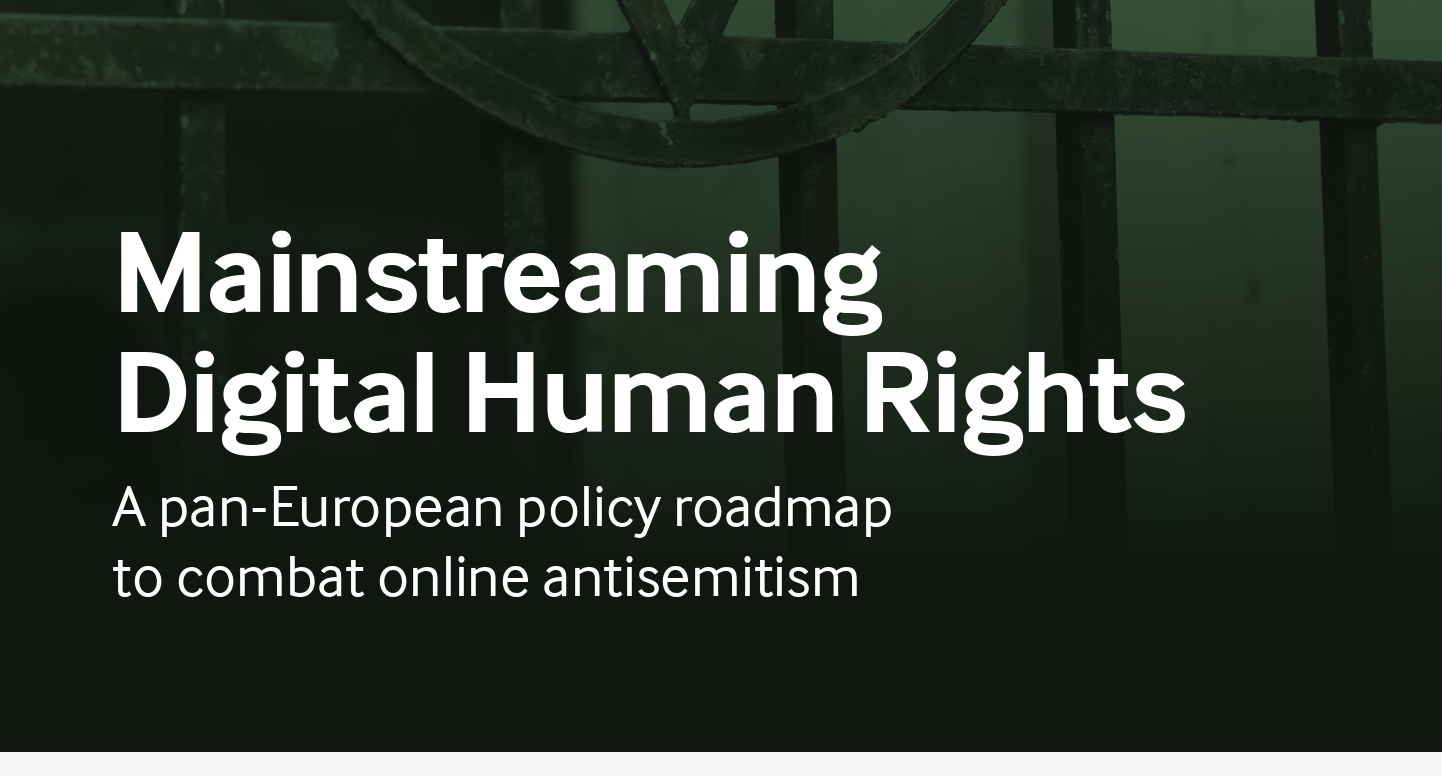From hashtags to hate: A Pan-European call to combat online antisemitism
The Institute for Strategic Dialogue (ISD), through the Coalition to Counter Online Antisemitism (CCOA), presents a landmark policy paper, “Mainstreaming Digital Human Rights: A Pan-European Policy Roadmap to Combat Online Antisemitism”. This report synthesizes findings from 42 interviews with experts, Jewish community leaders, and digital rights stakeholders across five European countries-France, Germany, Italy, Poland, and Sweden-to present a robust strategy against the escalating tide of online antisemitism.Context and scope
Even before the October 7, 2023 Hamas attacks, Jewish communities were already experiencing high levels of antisemitic abuse online. However, the post-October 7 period saw an unprecedented spike-such as a 51-fold increase in English-language antisemitic comments on YouTube videos related to the conflict. The report illustrates how antisemitism has evolved beyond explicit hate speech to include coded language, memes, conspiracy theories, and AI-generated content, often masquerading as legitimate political critique or human rights advocacy.The digital landscape enables a transnational spread of antisemitism that affects Jewish people’s sense of safety and inclusion, both online and offline. Many respondents across the five countries reported changing their digital behavior, hiding their identity, or withdrawing from social platforms entirely due to fear of harassment or violence.
Key themes and challenges
- Emotional and behavioral impact: Online antisemitism has created a chilling effect, silencing voices and reshaping Jewish identity expression, particularly among younger generations. Reports of harassment, trauma, and even self-harm underscore the urgent need for psychosocial support and intervention.
- Normalization and mainstreaming: Antisemitic narratives are no longer fringe; they have seeped into mainstream discourse-often disguised in the language of activism or politics. This normalization is especially dangerous when amplified by crises like COVID-19, geopolitical conflicts, or anti-establishment sentiment.
- Platform failures: Social media platforms are failing to enforce their own rules. Issues include weak moderation, poor linguistic coverage (e.g., no Swedish language moderators on X), and lack of transparency in how content is flagged or removed. Civil society actors report little faith in current reporting mechanisms.
- Regulatory gaps and DSA limitations: The Digital Services Act (DSA) is a step in the right direction, but its impact is limited by low public awareness, minimal engagement from Jewish organisations, and uneven national legal frameworks. Trusted flagger systems are under-resourced and underutilized.
- Law enforcement inefficacy: Legal systems across Europe struggle with the volume and complexity of online hate. Laws are outdated, and police lack the training to recognize and act against digital antisemitism-especially when it’s cloaked in coded or semi-legal forms.
Strategic recommendations
The report provides tailored, actionable policy pathways for four key stakeholder groups:1. Governments
- Invest in civil society-led monitoring and support structures.
- Reform curricula to teach contemporary antisemitism and digital literacy.
- Coordinate strategies across departments and borders to address online hate.
- Equip law enforcement with tools and training to tackle digital threats.
2. Tech platforms
- Fully implement and enforce Terms of Service and DSA compliance.
- Enhance algorithm transparency and moderation training, especially for covert antisemitic content.
- Work closely with civil society groups like CRIF (France) or UGEI (Italy) to tailor moderation efforts.
- Improve flagging systems, user support, and data access for researchers.
3. Regulators
- Support capacity-building for civil society groups to become trusted flaggers.
- Include more EU languages like Arabic, Russian, and Turkish in moderation frameworks.
- Strengthen oversight of small and fringe platforms where hate often incubates.
4. Civil Society
- Develop resilience programs and internal training to distinguish antisemitism from legitimate political critique.
- Promote interfaith solidarity and engage in counter-narrative campaigns.
- Collaborate across sectors to integrate DSA expertise and elevate community responses.
Mainstreaming Digital Human Rights: A Pan-European Policy Roadmap to Combat Online Antisemitism.



